Previous Philately Goes Bananas Philately Goes Bananas  Next Next
Given the fragile and perishable nature of the fruit ...
Given the fragile and perishable nature of the fruit, getting it to market was a challenge that had to be overcome before it could be sold far from the farm or plantation. Refrigerated ships and railway cars were developed to carry bananas to distant stores at affordable prices. In addition to being the subject of stamps such as those of Barbados (fig. 17) and Grenada (fig. 18), the so called "banana" boats provide much material for the collector of ship cancellations (fig. 19) and post cards (fig.20).
The fragile fruit required careful handling and further innovations in shipping. The on-going threat to banana crops from diseases similar to the one that destroyed the Gros Michel, requires the development of disease resistant varieties and techniques for cultivation to supplement the often dangerous and ultimately ineffective pesticides that were relied upon in the past. Saint Lucia's 1973 "Banana Industry" issue shows the crop being sprayed as well as being boxed prior to shipment (fig. 21). A 1975 issue from St. Vincent shows that as well as using pesticides, the modern production process involves covering banana bunches with polyethylene bags to protect them from wind, insect and bird attacks, and to help maintain optimum temperatures (fig. 22). The industry faces a constant struggle against disease and weather to keep store shelves stocked with economically priced supplies of its product.
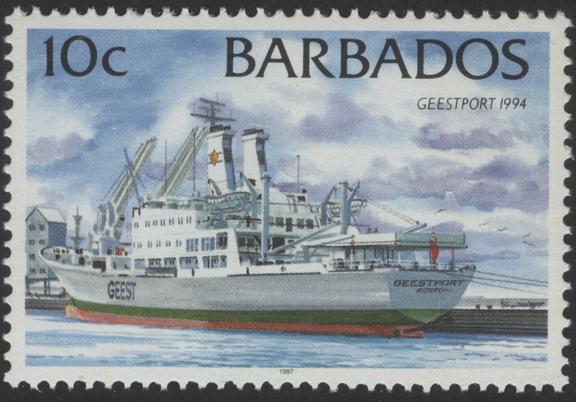
(fig.17)
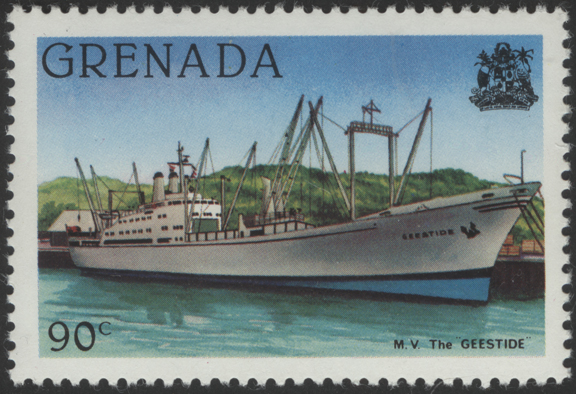
(fig.18)
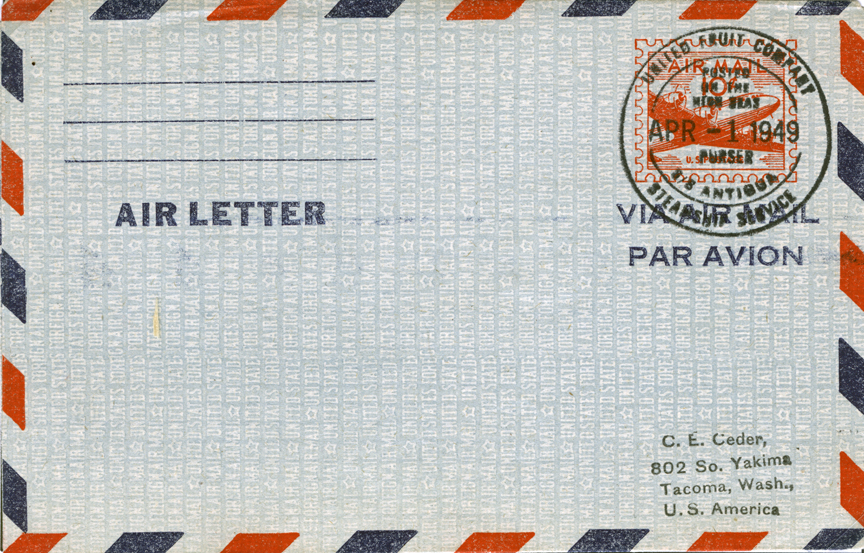
(fig.19)
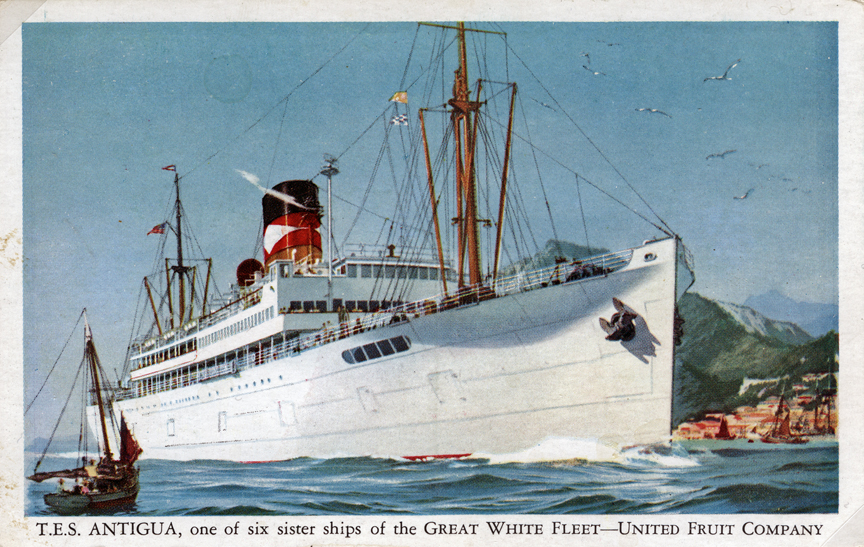
(fig.20)
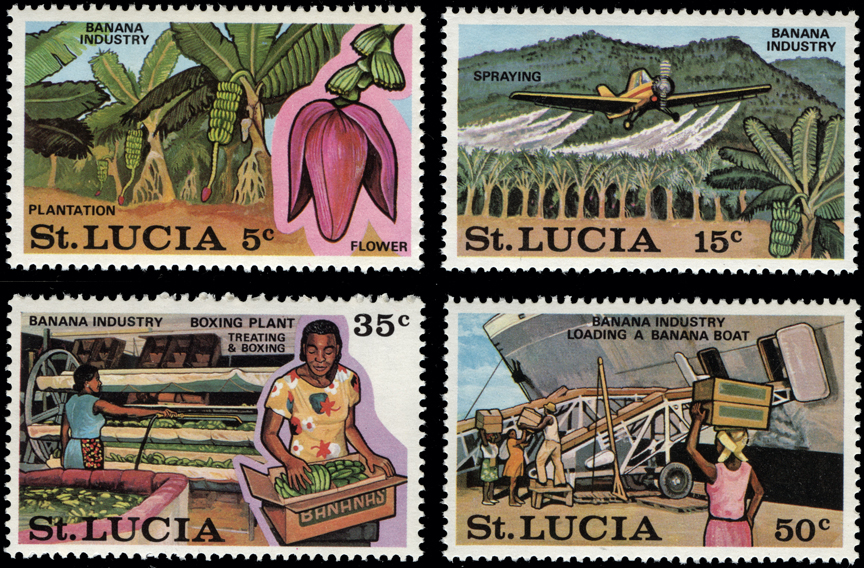
(fig.21)
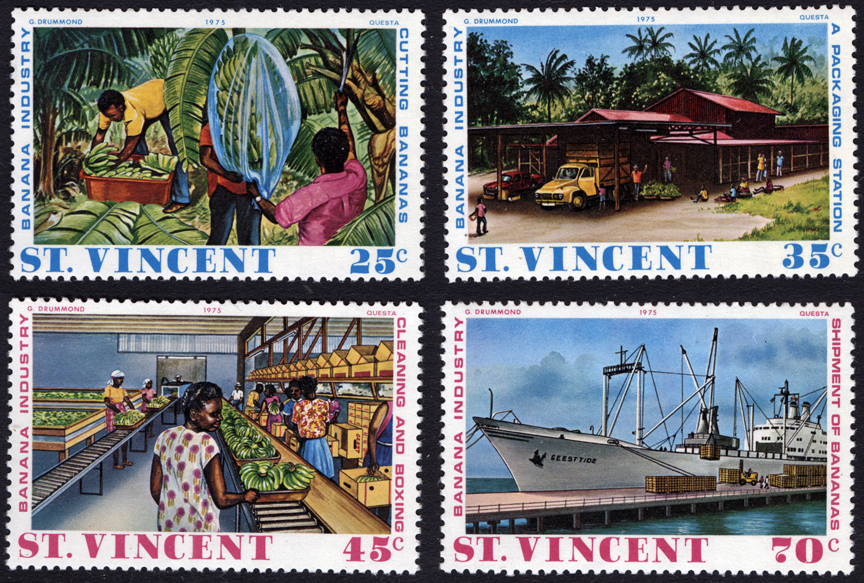
(fig.22)
 Previous Previous  Next Next
Return to the
Philately Goes Bananas
Home Page.
|